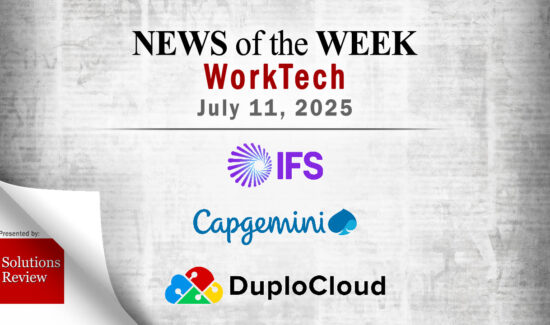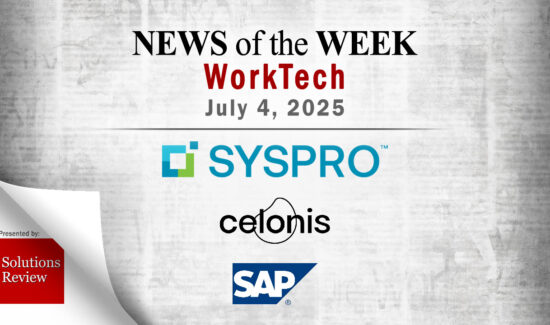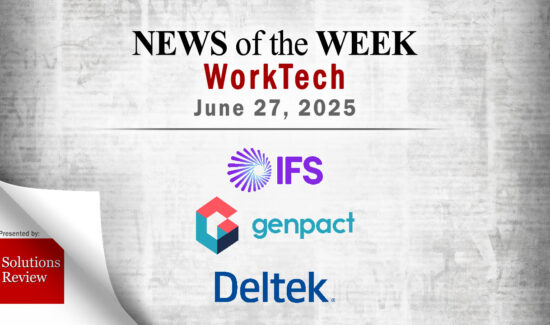What’s Changed: 2024 Magic Quadrant for Supply Chain Planning Solutions


The editors at Solutions Review have highlighted the updates in the 2024 edition of Gartner’s Magic Quadrant for Supply Chain Planning Solutions and summarized the findings.
Analyst house Gartner Inc. recently released the 2024 version of its Magic Quadrant for Supply Chain Planning Solutions. As defined by Gartner, a supply chain planning (SCP) solution provides “technological support to enable a company to manage, link, align, collaborate and share its planning data across an extended supply chain.” It can support various planning initiatives, ranging from demand planning to supply-side response planning, strategic planning, execution-level planning, and more.
A supply chain planning solution’s standard capabilities include demand and supply planning, financial impact analysis, and support for aligning planning decisions across an enterprise. It also lists some “optional capabilities,” including advanced analytics, artificial intelligence (AI), digital supply chain twins, continuous planning, multienterprise planning, and supply chain design, modeling, and segmentation tools.
What’s Changed: 2024 Gartner Magic Quadrant for Supply Chain Planning Solutions
In this updated Magic Quadrant, Gartner identifies twenty of the most significant Supply Chain Planning solution providers in the marketplace. The researchers behind the report—Pia Orup Lund, Tim Payne, Joe Graham, Caleb Thomson, and Jan Snoeckx—evaluated the strengths and weaknesses of each provider listed and ranked them on the signature “Magic Quadrant” graph, which provides readers with an illustration of each vendor’s ability to execute their vision. The diagram includes four quadrants: leaders, challengers, niche players, and visionaries.
Below is a breakdown of each category and the companies associated with it. Solutions Review’s rundown of last year’s Magic Quadrant for Supply Chain Planning Solutions is available here.
Leaders
Like last year, Kinaxis is the highest-ranked Leader in Gartner’s Magic Quadrant. Its RapidResponse solution provides midsize and large enterprises with SCP capabilities, including demand planning, supply planning, production planning, supply chain execution, and sales and operations planning (S&OP). Its strengths as an SCP vendor include a unified user experience, its collection of certified third-party implementation partners, and an emphasis on planning automation and alignment functionalities.
Oracle earns its spot with the Oracle Fusion Cloud Supply Chain Planning solution, part of its broader Supply Chain & Manufacturing (SCM) suite. Oracle primarily works with midsize-to-large enterprises, emphasizing those needing end-to-end supply chain management and manufacturing support. It differentiates itself from other providers with its vision for composable architecture, competitive pricing plans, and planning granularity, which enables customers to plan at any level of detail.
OMP’s offering, Unison Planning, supports almost every aspect of SCP, from detailed scheduling to network modeling functionalities. The company primarily works with large enterprises in the process manufacturing marketplace and earns top marks for its third-party implementation partners and support of various planning strategies. Gartner also spotlights OMP’s modeling of constraints as a differentiating quality, as it goes beyond traditional supply chain constraints with an emphasis on analytics and sustainability.
Logility has moved from the Challenger category into the Leaders. Its Digital Supply Chain Platform provides midsize and large enterprises with E2E enterprise and multienterprise planning, network design, demand planning, S&OP, inventory optimization, and production scheduling capabilities. Alongside its acquisition of Starboard Solutions in 2022 and Garvis in 2023, Logility differentiates itself in the market with an “above-average” vision for AI and its highly ranked customer engagement, service, and support efforts.
Blue Yonder rounds out the Leaders category with its Luminate Platform, which provides enterprises across industries with end-to-end multienterprise planning capabilities. Its strengths as an SCP provider include its comprehensive microservices architecture, supply chain analytics, and features suite, which provides inventory optimization, demand planning, promotion planning, detailed scheduling, and order promotion.
Challengers
John Galt Solutions is a Challenger in this year’s Magic Quadrant. The Atlas Planning Platform provides midsize and large enterprises with end-to-end planning capabilities in process manufacturing, discrete manufacturing, wholesale, and distribution markets. Its strengths include its shorter-than-average implementation times, well-regarded customer support services, and its vision for decision automation, as seen in its Atlas Intelligent Workflows, which can orchestrate human and machine activities.
SAP is once again a Challenger in Gartner’s report. Its SCP solution, SAP Integrated Business Planning (IBP), provides midsize and large enterprises across industries with demand planning, inventory optimization, S&OP, and supply planning capabilities, alongside natively integrated solutions for scheduling and order promising. Other notable qualities include its above-average customer growth, customer engagement strategies, and its global network of distribution partners, value-added resellers, and implementation partners.
RELEX Solutions provides extensive SCP functionalities to companies across the retail, wholesale, consumer products, and food and beverage markets. It supports demand planning, manufacturing scheduling, and S&OP capabilities alongside retail-specific offerings, like trade and promotion management. Gartner also spotlights the company’s data management, customer engagement, and constraint modeling tools as notable features.
Arkieva has moved from a Visionary to a Challenger in this year’s reports. The Arkieva Enterprise platform provides enterprises in process manufacturing, retail, consumer products, telecom, and utility industries with planning capabilities, including top-rated S&OE and execution visibility features reinforced by machine-driven decisions. Other strengths include its planning decision alignment, ability to support its customers’ data model needs, and vision for maintaining a scalable SCP solution.
Anaplan closes out the category with its Connected Planning platform, which equips enterprises with demand planning, supply planning, S&OP, procurement planning, financial planning, and extended planning and analysis (xP&A) capabilities. It receives high marks for its unified user experience, robust workflow management tools, and configurable user screens. It plans to expand its analytics suite with a GenAI co-pilot. Gartner spotlights Anaplan’s open architecture as a differentiating strength, making the Connected Planning platform one of the most extensible solutions on the market.
Niche Players
Adexa’s digital SCP solution focuses on providing midsize to large enterprises in North America, Western Europe, and Asia/Pacific (including Japan) with the tools they need to deliver accurate end-to-end (E2E) plans. The company stands out in the SCP marketplace with its straightforward pricing model, support for planning at highly granular levels with detailed scheduling, strong attribute-based planning capabilities, and its vision for the range of constraints it can model.
Coupa is a Niche Player in this year’s report, a change from its placement in the Challenger category in 2023. Its AI-driven platform provides midsize to large enterprises across industries with a collection of business applications across supply chain planning, including strategic network design, sourcing, supply planning, demand planning, inventory optimization, and more. Strengths include its implementation support via third-party consultancy partners, a high-scoring customer experience, and configured functionality coverage.
ToolsGroup is one of the new additions to Gartner’s report. Its SCP solution, Service Optimizer 99+ (SO99+), provides demand planning, replenishment, inventory planning, S&OP, transportation planning, and optimization capabilities. The company earns its place on the list with its “above-average” vision for handling uncertainty in supply chains, a transparent pricing model, affordable entry-level cost, and Inventory Hub offering, which supports real-time upstream and downstream latency to detect events in the supply chain.
Slimstock’s Slim4 platform focuses on inventory management, supplier collaboration, and demand and replenishment planning capabilities. The company primarily works with midsize enterprises across industries, focusing on wholesale and distribution markets in Western Europe and North America. Slimstock is well-regarded for its organic sales strategy, straightforward pricing model, and ability to be used as a single global reference for SCP.
AIMMS is another addition to this year’s report. Its low-code/no-code platform allows midsize and large enterprises in multiple industries to model and deploy SCP apps across their various planning layers. Gartner highlights AIMMS’ range of resource types and plan granularity as two of its greatest strengths, enabling users to plan at whatever level of granularity they need. The provider also earns high marks for its overall viability in the SCP market thanks to its high cloud deployment ratio and employee satisfaction scores.
Blue Ridge is the final newcomer in this year’s Magic Quadrant. With its Xpression Planning Platform, Blue Ridge provides distribution-intensive organizations with supply chain capabilities like demand planning, S&OP, procurement planning, and more. The company differentiates itself with its service cost and pricing strategies and singular focus on supply chain planning, which supports its organic growth strategy and viability in the market.
Visionaries
o9 Solutions is a Visionary in this year’s report, which marks a shift from its spot in the Leaders category in the 2023 iteration. Its o9 platform broadly focuses on providing planning capabilities across demand and supply use cases to help large enterprises in North America, Western Europe, Eastern Europe, and Asia/Pacific. Its strengths as an SCP vendor include its digital supply chain twin functionalities, the extensibility of its platform, and its customer engagement initiatives, which include everything from user conferences to road shows, webinars, executive councils, and more.
GAINSystems primarily works with companies in industrial manufacturing, distribution, defense, retail, and other similar industries. Its GAINS solution provides users with demand management, supply planning, network design, and inventory optimization capabilities. Additional strengths include its range of analytics tools, positive customer experiences, and support for different layers of planning-centric capabilities.
e2open returns to the Visionary category in this Magic Quadrant. Its SCP solutions are focused on integrated planning, with additional support for supply network and demand planning use cases. Gartner spotlights e2open’s vision for leveraging advanced technologies—i.e., deep learning, process mining, and several machine learning techniques—as one of its most notable strengths. Other differentiating qualities include a well-regarded customer engagement strategy and the platform’s ability to model different constraint types.
Dassault Systèmes closes the report with the DELMIA Quintiq solution, which focuses on integrated planning tools for various resources, including people, machines, materials, and transportation. According to Gartner, the vendor’s strengths as an SCP provider include the breadth of its capabilities, its ability to deal with complex supply chains and different constraints, and its ability to be deployed on various hyper-scale clouds or as an on-premises option.























